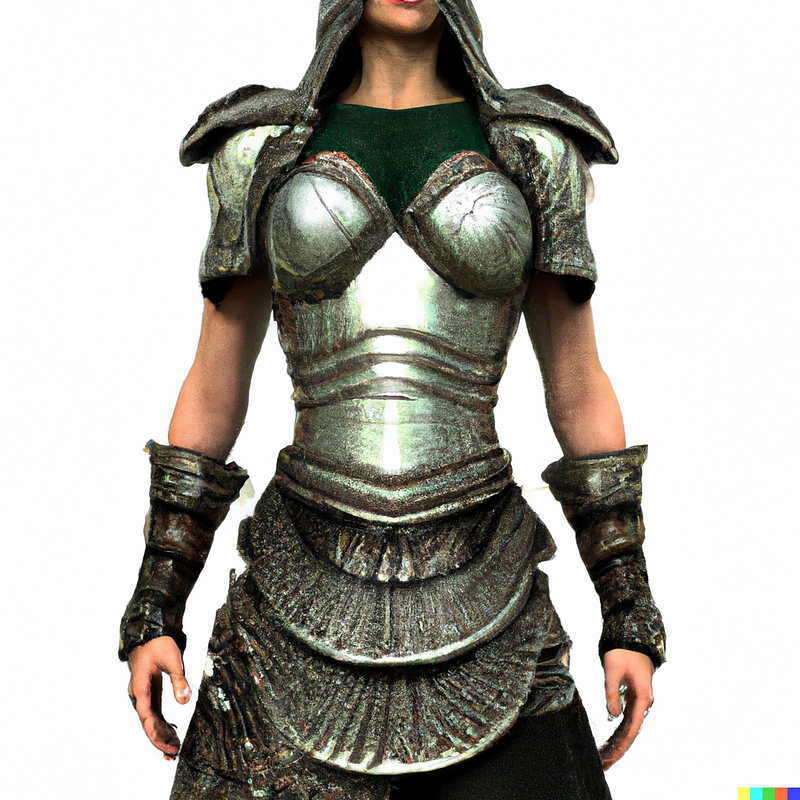The Limbo of Gender Identity
In between Patriarchs and Infants lie geeks who transition gender


There are two realizations I made this week. First, I am not a woman. Second, I am not a father, and — by extension — not a man. I exist in a weird Limbo of Gender Identity that confounds me and has left me melancholy all week.
Having said that, how realistic is it to expect our lives to have meaning and purpose every moment of the day? Is there ever a point where we can say “good enough” and simply exist for a while? Or is life one pattern of over-achievement leading directly to the next?
Identity is not a destination; it is a process. Identity is built daily, weekly, monthly, over years — by our choices, by our thoughts, and by our actions. No one day defines us, and every day can unravel us. Do we have the strength of character to wake up the next morning and continue on our path? That is our true challenge in life.
Am I a woman?
I received an email this week inviting me to a meeting. An email in itself is not a surprise — meetings are what make business go ‘round, the stock-in-trade of an employee in the Western world. What distinguished this meeting is its target: women in technology. The title of the meeting is “Celebrating Women in Tech: Build Bridges, Break Barriers.”
If you’ve read even a couple of my articles, you know I am a transgender woman. I have been in transition just under eight months at the time of writing. I have transitioned socially and continue to experience change in my medical transition.
Being invited to a meeting for women, about women, and with other women to discuss the challenges women face in the workplace is a tremendous honor to me. I am flattered beyond belief to be included in this group.
I have been seen. I have been acknowledged. But more than having been seen and acknowledged, I have been accepted. I have been welcomed. So much of me screams out “Amethysta, this is it! You’ve arrived!”
And yet… I left my career in science and technology to become a writer. That is why you are reading this article right now. I spent 25 years as a software developer, a chemistry professor, and a software manager. Before I transitioned socially, I left that career behind.
I am being acknowledged and welcomed to a meeting to discuss the discrimination women face in science and technology. As a technical leader, a mentor, and a hiring manager for 25 years, I wonder how much I personally contributed to that problem. How many bridges did I fail to build? How many barriers did I erect? It is impossible to answer the questions.
Drowning in my own hypocrisy
I do not belong in a meeting to discuss the injustice of how women are treated in the fields I have worked. How hypocritical is it to attend a meeting and cluck my tongue at a problem I may have helped create? It may well be I was never part of the solution, I was always part of the precipitate (little chemistry joke for the chemists out there).
I was seen, I was acknowledged, I was accepted and welcomed, but I am not woman enough to face my own hypocrisy this starkly. I wish I were. I wish I were courageous enough just to attend the meeting and say “Look…I’m sorry.”
I wrote previously how euphoric it feels to be ignored in restaurants, to have an emissions check mansplained to me, and for men to look at my butt as I put my coat on. How horrific am I? Maybe it’s time for me to stop pretending that wearing a skirt and makeup is the same as being a woman.
Am I a father?
In what may sound completely unrelated, I saw the movie “Avatar: The Way of Water.” I enjoyed the movie in a “wow, look at all the explosions and guns” kind of way. The story began to develop water and the sea as symbols of the Divine Feminine: the power to receive, to build, to nurture, and to grow. I was disappointed that the ending focused on a masculine expression of “go beat the shit out of each other,” but that certainly sells in Hollywood better than the feminine.
One of the main characters — Jake Sully — utters these lines twice in the movie:
A father protects. It’s what gives him meaning.
My son appears to have lost friends in the last few months. He went to school proud of me for beginning transition — he told me he thought transition “makes me a better person.” He told his friends — children from religious, conservative families — about my transition. His friends now distance themselves from him, and I cannot protect him from whatever shame they may direct toward him.
If a father protects, what am I?
Where is my meaning?
Protecting, says Jake Sully, is what gives fathers meaning. But I can’t protect my son against mean kids on the playground. I certainly can’t punch and kick and shoot and whatever the hell else Jake Sully does to about ten thousand nameless, faceless schmoes who lost their lives for being on the wrong side of a tall blue guy.
So what gives me meaning? I suppose I could turn that around and claim I don’t need to worry about meaning if I’m not a father. But I cannot help myself in coupling the idea of a father’s meaning with the hypocrisy of attending a meeting about breaking barriers for women above.
Is my meaning destroying bridges and erecting barriers in the technology workplace since I can’t punch and kick ten thousand nameless, faceless schmoes? It seems rather pitiful. At least, it seems rather pitiful for the men who do it.
Life is only living
As I see it, I am not a woman. I am also not a man. I am transitioning gender, and there is no end to transition. Although I feel so much better — about myself, about life, about my future — these last eight months leave me in a Limbo I did not expect.
My dear friend and Sister Stephanie Moga gave me an important piece of wisdom: transition is not a panacea. For every problem transition solves, it creates another. The dichotomy I set up between “woman in the workplace” and “father kicking faceless heads” is false.
There is no arriving. There is no fixing every problem. After you tick every checkbox on your to-do list, another list is generated.
What gives us meaning is what Stephanie called “just living.” In between the hard problems, in between the bright moments of joy, we build the habit of living as who we are. The moments of heroism do not define us. The moments of despair do not define us. How we accept and integrate both moments into the narrative of our lives is what defines us.
My son told my wife he can find new friends, as he certainly does not want me to stop gender transition. These moments reinforce how much I admire my son. He doesn’t see problems and solutions — a transactional approach to each day. He sees a longer-range purpose to life.
Maybe — with time — my transition will evolve from cleaning up the messes I made in the past 52 years to building the future I hoped to achieve. Nothing I did in the past eight months has made me “successful.” It only gave me the Amazon armor necessary to live out the rest of my life.




